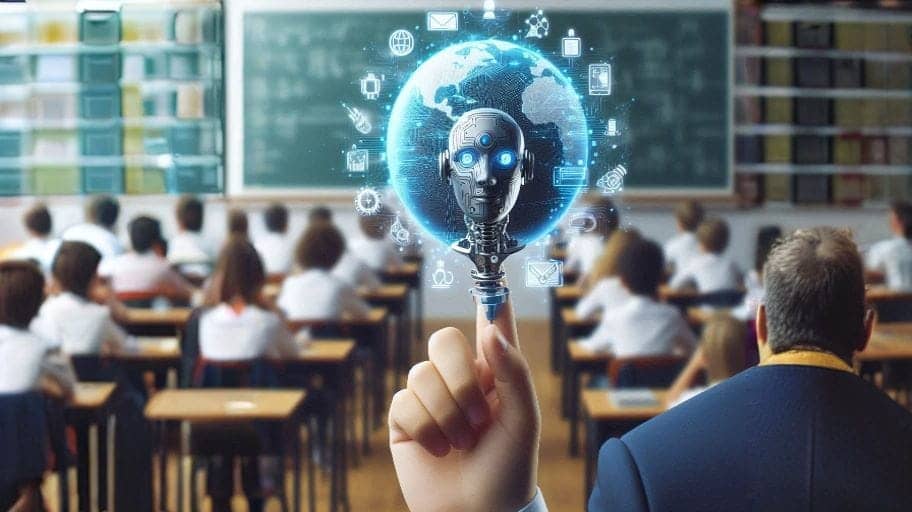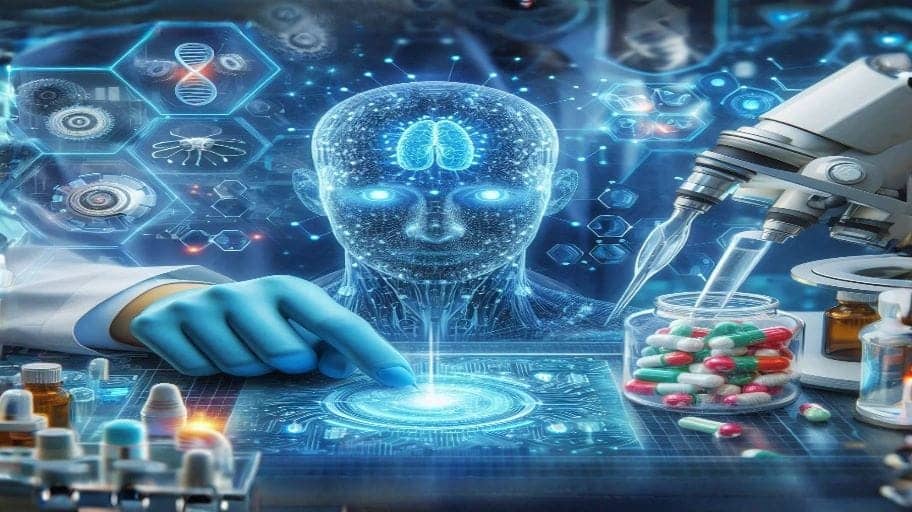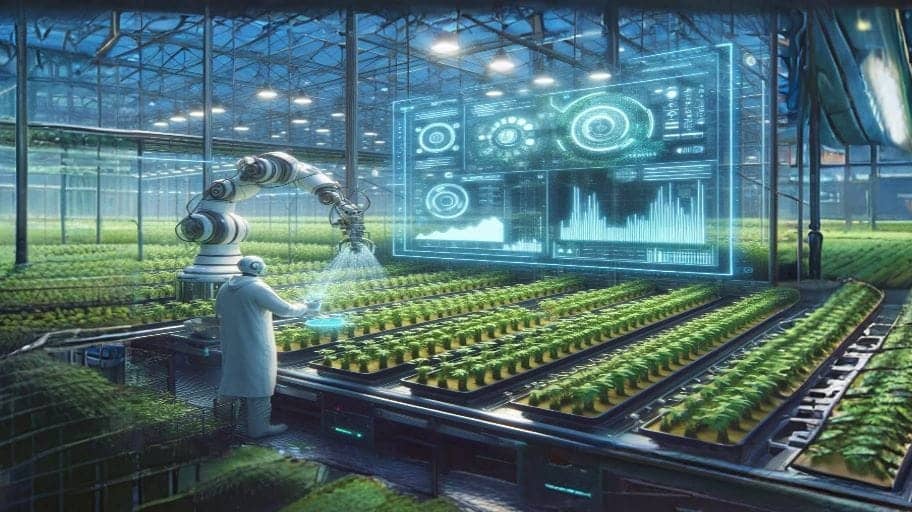AI in Biotechnology
The rapid growth of artificial intelligence is bringing biotechnology itself to the cusp of a revolution. It is only by combining artificial intelligence that scientists have been able to discover new vistas in drug discovery and development, which until a few years ago appeared to be far from human imagination. This powerful mixture does not only speed up the time it takes to discover new drugs but also makes it cost-effective and efficient. This post shows how AI in biotechnology is changing the landscape of drug discovery, takes a look at its real-world applications, and finally the role AI plays in shaping the future of medicine.
At the Junction of AI and Biotechnology
Arguably, two of the most dynamic and transformative scientific fields today are artificial intelligence and biotechnology. The synergies created by merging them develop further exciting potentials for drastically improved drug discovery and development. AI in biotechnology assembles machine learning algorithms, big data, and computational power for analyzing large amounts of biological data to identify potential candidates and predict their efficacy and safety.
How AI Is Revolutionizing Drug Discovery
Traditionally, the drug discovery process could be long and costly, sometimes taking more than a decade and billions of dollars to bring a new drug to the market. But AI in biotechnology is changing that. Algorithms within AI can process data at enormous speeds, which helps to identify potential drug candidates in a time frame that is incomparably shorter than the traditional approach.
AI, for instance, can analyze protein structures in a bid to predict how different compounds will react with them. Such a capacity allows researchers to quickly screen for the most promising candidates for further testing. In this respect, AI can also simulate clinical trials in virtual models, thus reducing the much-needed intensive and costly human trials.
Applications of AI in Biotechnology
The applications of AI in biotechnology are so vast and varied. Let’s delve into some of the key areas where AI is making a difference.
AI-Powered Drug Design
One of the most promising applications of AI in biotechnology is drug design. AI algorithms can analyze large datasets of chemical compounds against biological targets to find potential drug candidates and aid in designing safer, more effective medications by predicting compound interactions with biological targets.
- Companies like Insilico Medicine and Atomwise use AI for next-gen drug designs against diseases resistant to traditional treatments.
- These AI biotech companies lead in revolutionizing drug design algorithms and predicting disease outcomes and treatment responses.
- AI’s role in developing personalized medicine and tailoring treatments to individual patient characteristics is crucial.
- Predictive analytics is another key area where AI influences biotechnology.
For instance, right now, AI can tell which patients will respond to a particular treatment based on their genetic profile. This potential places recommendations for treatment on a whole new level, dramatically improving results and drastically reducing the trial-and-error approach often associated with finding the right therapy for a patient.
The Role of AI Biotech Companies
AI biotech companies lead the way in integrating AI with biotechnology to speed up drug discovery and development. Such companies leverage the strength of AI in managing and analyzing vast volumes of data, spotting new drug candidates, and optimizing the development process.
Best AI Biotech Companies to Watch
Here are some AI biotech companies using inventive means for drug discovery.
Insilico Medicine: uses AI in the development of drugs for aging-associated diseases and cancer. The company’s AI platform analyzes biological data to identify potential drug targets for the design of new molecules.
Atomwise: This company is known for its AI-driven platform based on deep learning that discovers new drugs; thereby, its technology has been applied to the identification of potential treatments against diseases such as Ebola and multiple sclerosis.
BenevolentAI: BenevolentAI’s platform uses AI to harness biological data, accelerating drug development for complex diseases. It integrates scientific literature and patient data to discover novel drug candidates. These biotech AI companies are beginning to illustrate the potential of AI in biotechnology for faster, more efficient drug development.
Applications of Artificial Intelligence in Biotechnology
Drug discovery is just one use of artificial intelligence in biotechnology. AI is also being applied in various aspects of biotechnology, from diagnostics to agricultural biotechnology.
AI in Medical Biotechnology
Artificial intelligence is playing a very important role in diagnostics and treatment planning, which will enhance the field of medical biotechnology. AI-driven tools diagnose diseases at an early stage with medical images like X-rays and MRIs. The AI algorithms analyze the patient records and their genetic data and suggest personalized treatment plans that would help them recover more significantly.
For example, Google’s DeepMind has developed AI algorithms capable of diagnosing eye diseases from retinal scans with remarkable accuracy. Such AI tools are hence helping doctors to make quick and accurate diagnoses for their patients.
AI in Agricultural Biotechnology
Artificial intelligence is moving ahead with great strength in biotechnology. With the help of data from field sensors, satellite images, and weather forecasts, artificial intelligence algorithms optimize crop management. Predicting the best times to plant, water, and harvest will help increase crop yield and minimize waste.
For getting more resistant crops to pests and other diseases or environmental threats, AI can be used to modify crops genetically. This last application of AI in biotechnology ensures food security under climate change and a surging world population.
The future in this fusion of AI with biotechnology is highly promising, with possible revolutions in several dimensions of healthcare and agriculture. Even more innovative progressions may be seen in the future as AI technology continues to develop in the biotech industry.
Challenges and Ethical Considerations
While the potential of AI in biotechnology is large, one must not forget the challenges and ethical consequences that could be involved with the technology. One of the significant challenges is the requirement for extensive amounts of high-quality data to train AI algorithms. In most cases, this data is sensitive, raising concerns over privacy and the security of data.
The Way Forward
- Realizing AI’s full potential in biotech requires increased investment in research and development.
- Ethical and regulatory frameworks are essential to guide AI’s use in biotechnology.
- Collaboration among AI biotech companies, academic institutions, and regulators is crucial for proper AI development and implementation.
Conclusion
AI’s inclusion in the field of biotechnology changes very fast the topology of drug discovery and development and leads to new opportunities for accelerated, cost-efficient research. Today, AI is at the forefront of shaping the future of medications, from drug design to predicting treatment outcomes. Each advancement in AI for biotechnology requires careful consideration of the ethical and practical challenges it introduces.
It concerns the much larger number of new groundbreaking advancements we must expect from AI biotech companies in the upcoming few years. The future of AI in biotechnology looks bright, heralding a new age for healthcare and beyond. In conclusion, by welcoming the power of AI and tackling its issues, we can empower this technology to improve human health and well-being worldwide.



